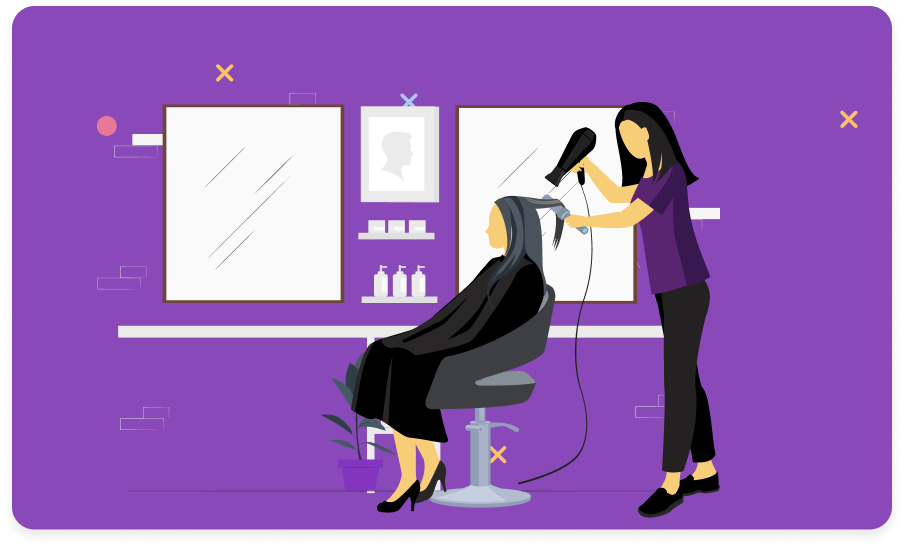
Brainwave Battle
Brainwave Battle is an engaging, competitive quiz game designed to reinforce the knowledge gained during recent training sessions. Participants are divided into two or three teams, challenging each other to answer questions based on the training material. The game encourages collaboration, communication, and recall of important information, turning the learning process into a fun, interactive experience.
Pre-game preparation:
- Review the training material to create a list of relevant and engaging questions.
- Divide the questions into categories or difficulty levels to ensure variety and balanced gameplay.
- Develop a scoring system (e.g., 1 point for easy questions, 2 points for medium, and 3 points for difficult questions).
Forming teams:
- Divide the participants into two or three balanced groups, taking into consideration their skill sets and personalities.
- Assign a team name or color to each group for easy identification.
Game setup:
- Designate a moderator to ask questions, keep score, and manage time.
- Arrange the room to accommodate each team comfortably and provide materials for note-taking or collaboration, if needed.
- Explain the game rules, scoring system, and time limits to all participants.
Gameplay:
- The moderator begins by asking a question from the prepared list, allowing teams a designated time (e.g., 15-30 seconds) to discuss and provide an answer.
- Teams earn points based on the correct answers and the difficulty level of the questions
- The moderator continues to ask questions, alternating between teams to maintain fairness and momentum.
- Implement bonus rounds or challenge questions to keep the game exciting and unpredictable.
- Optionally, include a final round where teams can wager a portion of their points on a high-stakes question.
Game Rules:
- Teams take turns answering questions prepared by the moderator, based on the training material.
- Each question has a designated difficulty level and point value (e.g., 1 point for easy questions, 2 points for medium, and 3 points for difficult questions).
- The moderator gives teams a specific time (e.g. 15-30 seconds) to discuss and provide an answer.
- Teams earn points based on the correct answers and the difficulty level of the questions.
- The moderator alternates between teams for each question to maintain fairness and momentum.
- Bonus rounds or challenge questions can be introduced to keep the game exciting and unpredictable.
- Optionally, a final round can be included where teams can wager a portion of their points on a high-stakes question.
- The game continues until all questions have been asked or a pre-determined time limit is reached. At the end of the game, the team with the highest score is declared the winner.
Wrapping up:
- Tally up the scores and declare a winning team.
- Reward the winning team with a small prize, certificate, or recognition.
- Provide feedback on the teams' performance, highlighting areas where further training or clarification might be necessary.
- Encourage participants to share their experiences and insights from the game.

Melodic Alphabet Showdown
"Melodic Alphabet Showdown" is a lively and entertaining game that tests salon team members' musical knowledge and quick thinking. Participants are divided into two teams, and each team takes turns having a member pick a letter from a bowl containing alphabet cards. The player must then sing a song that starts with the chosen letter within 30 seconds. The game continues until all team members have had a chance to participate. Songs cannot be repeated. In the end, the final score is calculated, and the winning team is selected based on the number of successful song attempts. "Melodic Alphabet Showdown" offers a fun and engaging way for salon team members to showcase their musical knowledge, quick thinking, and memory skills while promoting team bonding and friendly competition. Through this entertaining challenge, participants can learn more about their fellow team members' musical tastes, discover new songs, and enjoy a light-hearted activity that brings the team together.
Pre-game preparation:
- Write down the letters A to Z on individual cards or pieces of paper.
- Prepare a bowl or container to hold the cards.
Forming teams:
- Divide participants into two teams, ensuring a balanced number of team members.
- Encourage team members to support and cheer on their fellow participants.
Game setup:
- Designate a moderator to facilitate the game, manage time, and keep score.
- Explain the game rules and format, including the 30-second time limit and no song repetition rule, to all participants.
Gameplay:
- Have one player from each team come up to the bowl and pick a letter card simultaneously.
- Start the timer, and the two players must each sing a song that begins with the chosen letter within 30 seconds.
- Songs cannot be repeated during the game. If a song has already been sung, the player must think of a different one.
- The game continues until all team members have had a chance to participate, alternating between teams
Game Rules:
- Teams take turns picking a letter card from the bowl.
- Players must sing a song that begins with the chosen letter within 30 seconds.
- Songs cannot be repeated during the game.
- The game continues until all team members have participated.
- The winning team is the one with the highest number of successful song attempts.
Wrapping up:
- The moderator calculates the final scores and announces the winning team.
- Present the winning team with an award or recognition, such as a certificate or small prize.
- Facilitate a group discussion on the lessons learned, challenges faced, and overall experience of the Melodic Alphabet Showdown game.
- Encourage team members to share any insights or discoveries they made during the game, fostering a deeper understanding of their fellow team members' musical knowledge and preferences.

Salon Showdown
Salon Showdown is a fun and interactive team-based game designed for salons. Participants are divided into two teams, and they take turns describing salon products without mentioning their names. The goal is for their teammates to correctly guess the product within a 1-minute time limit. The game encourages communication, active listening, and product knowledge, making it an entertaining way to enhance the salon experience and foster team bonding. Salon Showdown offers a unique and engaging way to improve product knowledge and team collaboration within a salon setting, creating a fun and dynamic learning experience for all participants.
Pre-game preparation:
- Gather a variety of salon products, ensuring there are enough items for each participant to describe one.
- Create a space for teams to sit or stand, facing each other or in a semicircle.
Forming teams:
- Divide participants into two balanced teams, considering their familiarity with salon products and their roles in the salon.
- Assign a team name or color to each group for easy identification.
Game setup:
- Designate a moderator to keep track of time, ensure rules are followed, and manage the flow of the game.
- Write the names in one cheat and each member picks one coming at the middle facing their team.
- Explain the game rules, time limits, and scoring system to all participants.
Gameplay:
- The first round begins with one team choosing a cheat sheet from the central location and handing it to a member of the opposing team.
- The member has 1 minute to describe the product to their teammates without mentioning its name or specific brand. They can use descriptions of the product's appearance, function, usage, and other relevant details.
- The describing team's members try to guess the product's name within the 1-minute time limit. If they correctly identify the product, they earn a point.
- The game continues with alternating teams and team members, ensuring everyone gets a chance to describe a product.
Game Rules:
- Teams take turns answering questions prepared by the moderator, based on the training material.
- Each question has a designated difficulty level and point value (e.g., 1 point for easy questions, 2 points for medium, and 3 points for difficult questions).
- The moderator gives teams a specific time (e.g. 15-30 seconds) to discuss and provide an answer.
- Teams earn points based on the correct answers and the difficulty level of the questions.
- The moderator alternates between teams for each question to maintain fairness and momentum.
- Bonus rounds or challenge questions can be introduced to keep the game exciting and unpredictable.
- Optionally, a final round can be included where teams can wager a portion of their points on a high-stakes question.
- The game continues until all questions have been asked or a pre-determined time limit is reached. At the end of the game, the team with the highest score is declared the winner.
Wrapping up:
- Tally up the scores and declare a winning team.
- Reward the winning team with a small prize, certificate, or recognition.
- Provide feedback on the teams' performance, highlighting areas where further training or clarification might be necessary.
- Encourage participants to share their experiences and insights from the game.

Salon Trivia Tussle
Salon Trivia Tussle is an entertaining team-based quiz game focused on salon history, common salon information, and specific offerings. Participants are divided into two teams, and they take turns answering trivia questions posed by the opposing team. Teams earn points for correct answers, and the team with the highest score at the end of the game is declared the winner. The game promotes team bonding, friendly competition, and a deeper understanding of the salon's history and services. Salon Trivia Tussle offers a fun and engaging way for salon team members to expand their knowledge of salon history, industry information, and the specific offerings of their salon while fostering team spirit and friendly competition.
Pre-game preparation:
- Review the training material to create a list of relevant and engaging questions.
- Divide the questions into categories or difficulty levels to ensure variety and balanced gameplay.
- Develop a scoring system (e.g., 1 point for easy questions, 2 points for medium, and 3 points for difficult questions).
Forming teams:
- Divide the participants into two or three balanced groups, taking into consideration their skill sets and personalities.
- Assign a team name or color to each group for easy identification.
Game setup:
- Designate a moderator to ask questions, keep score, and manage time.
- Arrange the room to accommodate each team comfortably and provide materials for note-taking or collaboration, if needed.
- Explain the game rules, scoring system, and time limits to all participants.
Gameplay:
- The moderator begins by asking a question from the prepared list, allowing teams a designated time (e.g., 15-30 seconds) to discuss and provide an answer.
- Teams earn points based on the correct answers and the difficulty level of the questions
- The moderator continues to ask questions, alternating between teams to maintain fairness and momentum.
- Implement bonus rounds or challenge questions to keep the game exciting and unpredictable.
- Optionally, include a final round where teams can wager a portion of their points on a high-stakes question.
Game Rules:
- Teams take turns answering questions prepared by the moderator, based on the training material.
- Each question has a designated difficulty level and point value (e.g., 1 point for easy questions, 2 points for medium, and 3 points for difficult questions).
- The moderator gives teams a specific time (e.g. 15-30 seconds) to discuss and provide an answer.
- Teams earn points based on the correct answers and the difficulty level of the questions.
- The moderator alternates between teams for each question to maintain fairness and momentum.
- Bonus rounds or challenge questions can be introduced to keep the game exciting and unpredictable.
- Optionally, a final round can be included where teams can wager a portion of their points on a high-stakes question.
- The game continues until all questions have been asked or a pre-determined time limit is reached. At the end of the game, the team with the highest score is declared the winner.
Wrapping up:
- Tally up the scores and declare a winning team.
- Reward the winning team with a small prize, certificate, or recognition.
- Provide feedback on the teams' performance, highlighting areas where further training or clarification might be necessary.
- Encourage participants to share their experiences and insights from the game.

Salon Makeover Extravaganza
Salon Makeover Extravaganza is a fashion show-style event where salon team members showcase their creativity, artistry, and talent through a fun and engaging makeover challenge. Each participant draws a teammate's name and is tasked with giving them a complete makeover. At the end of the challenge, a demonstration is held, and a jury selects the best makeover, crowning the winner. Salon Makeover Extravaganza is an entertaining and interactive event that allows salon team members to showcase their creativity, talent, and skill in a supportive and enjoyable environment. By engaging in friendly competition and working on their teammates' makeovers, participants can learn from one another, foster team bonding, and celebrate their shared passion for the beauty industry.
Pre-game preparation:
- Review the training material to create a list of relevant and engaging questions.
- Divide the questions into categories or difficulty levels to ensure variety and balanced gameplay.
- Develop a scoring system (e.g., 1 point for easy questions, 2 points for medium, and 3 points for difficult questions).
Forming teams:
- Divide the participants into two or three balanced groups, taking into consideration their skill sets and personalities.
- Assign a team name or color to each group for easy identification.
Game setup:
- Designate a moderator to ask questions, keep score, and manage time.
- Arrange the room to accommodate each team comfortably and provide materials for note-taking or collaboration, if needed.
- Explain the game rules, scoring system, and time limits to all participants.
Gameplay:
- The moderator begins by asking a question from the prepared list, allowing teams a designated time (e.g., 15-30 seconds) to discuss and provide an answer.
- Teams earn points based on the correct answers and the difficulty level of the questions
- The moderator continues to ask questions, alternating between teams to maintain fairness and momentum.
- Implement bonus rounds or challenge questions to keep the game exciting and unpredictable.
- Optionally, include a final round where teams can wager a portion of their points on a high-stakes question.
Game Rules:
- Teams take turns answering questions prepared by the moderator, based on the training material.
- Each question has a designated difficulty level and point value (e.g., 1 point for easy questions, 2 points for medium, and 3 points for difficult questions).
- The moderator gives teams a specific time (e.g. 15-30 seconds) to discuss and provide an answer.
- Teams earn points based on the correct answers and the difficulty level of the questions.
- The moderator alternates between teams for each question to maintain fairness and momentum.
- Bonus rounds or challenge questions can be introduced to keep the game exciting and unpredictable.
- Optionally, a final round can be included where teams can wager a portion of their points on a high-stakes question.
- The game continues until all questions have been asked or a pre-determined time limit is reached. At the end of the game, the team with the highest score is declared the winner.
Wrapping up:
- Tally up the scores and declare a winning team.
- Reward the winning team with a small prize, certificate, or recognition.
- Provide feedback on the teams' performance, highlighting areas where further training or clarification might be necessary.
- Encourage participants to share their experiences and insights from the game.

Salon Scavenger Hunt
Salon Scavenger Hunt is an exciting and fast-paced game that encourages team members to explore the salon and discover hidden treasures. The moderator creates a list of salon-related items or tasks that teams must find or complete within a specific time frame (e.g., 30 minutes). The game promotes teamwork, problem-solving, and a deeper understanding of the salon's layout, products, and services. Salon Scavenger Hunt offers a fun and engaging way for salon team members to learn more about their work environment while promoting teamwork, problem-solving, and communication. Through the exciting challenge of discovering hidden treasures and completing salon-related tasks, participants can deepen their knowledge of the salon's layout, products, and services while fostering team bonding and collaboration.
Pre-game preparation:
- Review the training material to create a list of relevant and engaging questions.
- Divide the questions into categories or difficulty levels to ensure variety and balanced gameplay.
- Develop a scoring system (e.g., 1 point for easy questions, 2 points for medium, and 3 points for difficult questions).
Forming teams:
- Divide the participants into two or three balanced groups, taking into consideration their skill sets and personalities.
- Assign a team name or color to each group for easy identification.
Game setup:
- Designate a moderator to ask questions, keep score, and manage time.
- Arrange the room to accommodate each team comfortably and provide materials for note-taking or collaboration, if needed.
- Explain the game rules, scoring system, and time limits to all participants.
Gameplay:
- The moderator begins by asking a question from the prepared list, allowing teams a designated time (e.g., 15-30 seconds) to discuss and provide an answer.
- Teams earn points based on the correct answers and the difficulty level of the questions
- The moderator continues to ask questions, alternating between teams to maintain fairness and momentum.
- Implement bonus rounds or challenge questions to keep the game exciting and unpredictable.
- Optionally, include a final round where teams can wager a portion of their points on a high-stakes question.
Game Rules:
- Teams take turns answering questions prepared by the moderator, based on the training material.
- Each question has a designated difficulty level and point value (e.g., 1 point for easy questions, 2 points for medium, and 3 points for difficult questions).
- The moderator gives teams a specific time (e.g. 15-30 seconds) to discuss and provide an answer.
- Teams earn points based on the correct answers and the difficulty level of the questions.
- The moderator alternates between teams for each question to maintain fairness and momentum.
- Bonus rounds or challenge questions can be introduced to keep the game exciting and unpredictable.
- Optionally, a final round can be included where teams can wager a portion of their points on a high-stakes question.
- The game continues until all questions have been asked or a pre-determined time limit is reached. At the end of the game, the team with the highest score is declared the winner.
Wrapping up:
- Tally up the scores and declare a winning team.
- Reward the winning team with a small prize, certificate, or recognition.
- Provide feedback on the teams' performance, highlighting areas where further training or clarification might be necessary.
- Encourage participants to share their experiences and insights from the game.

Salon Secrets Showdown
Salon Secrets Showdown is an exciting and engaging get-to-know-you game adapted from the classic "Two Truths and a Lie" format. It encourages team bonding, communication, and a deeper understanding of your salon teammates. The game involves participants coming up with three "facts" about themselves – two of them are true, and one is a lie. The goal is to guess the lie while learning more about one another. The game fosters team bonding, friendly competition, and professional development. So, what are you waiting for? It's time to bring your salon team together and ignite their collaborative spirit. Try out these team-building games at your next salon event or meeting, and watch your team's creativity, communication, and connections soar to new heights. Don't miss this opportunity to elevate your salon's atmosphere and boost your team's morale. Start planning your team-building game session today!
Pre-game preparation:
- Review the training material to create a list of relevant and engaging questions.
- Divide the questions into categories or difficulty levels to ensure variety and balanced gameplay.
- Develop a scoring system (e.g., 1 point for easy questions, 2 points for medium, and 3 points for difficult questions).
Forming teams:
- Divide the participants into two or three balanced groups, taking into consideration their skill sets and personalities.
- Assign a team name or color to each group for easy identification.
Game setup:
- Designate a moderator to ask questions, keep score, and manage time.
- Arrange the room to accommodate each team comfortably and provide materials for note-taking or collaboration, if needed.
- Explain the game rules, scoring system, and time limits to all participants.
Gameplay:
- Teams take turns presenting their three "facts" (two truths and a lie) about one of their members, without revealing which team member the facts are about.
- The opposing team then has a chance to guess which of the three facts is the lie.
- If the opposing team guesses correctly, they earn a point. If not, the presenting team earns a point.
- The game continues with each team taking turns presenting "facts" and guessing the lies, until every team member has had their facts presented.
Game Rules:
- Each team presents three "facts" (two truths and a lie) about one of their members.
- Opposing teams have a chance to guess which fact is the lie.
- Points are awarded for correct guesses or successful deception.
- The game continues until all team members' facts have been presented.
Wrapping up:
- Tally up the scores and declare a winning team.
- Reward the winning team with a small prize, certificate, or recognition.
- Encourage participants to discuss their experiences, insights, and any interesting or surprising revelations from the game.